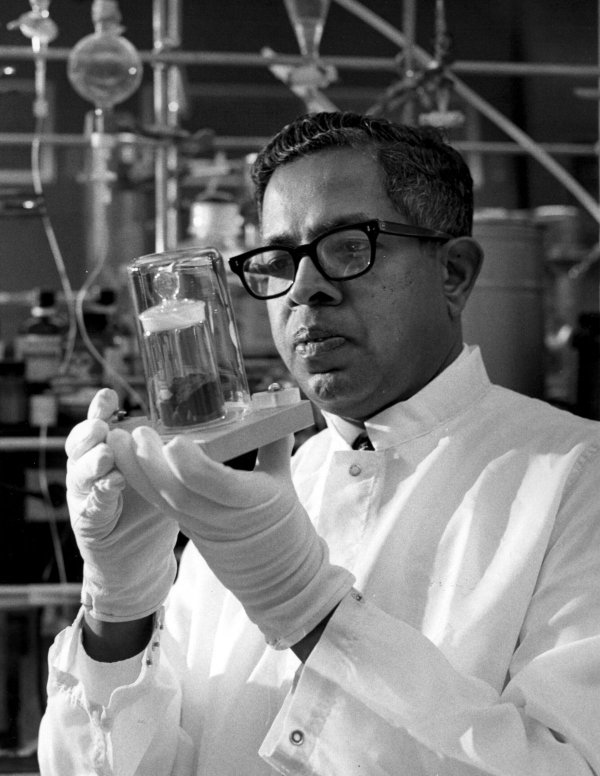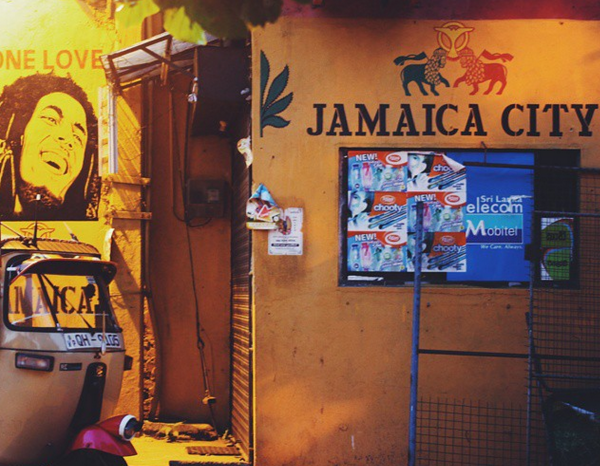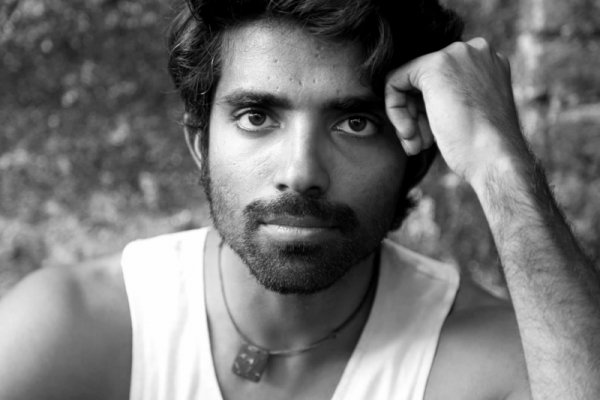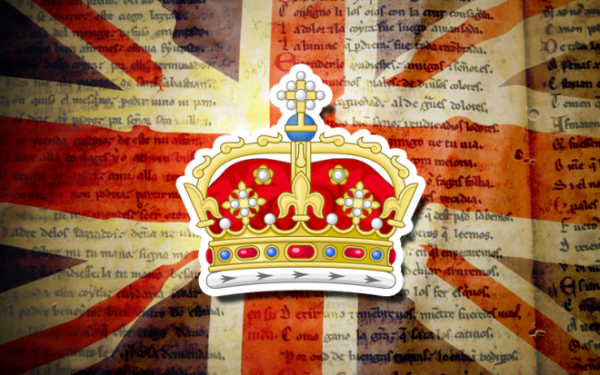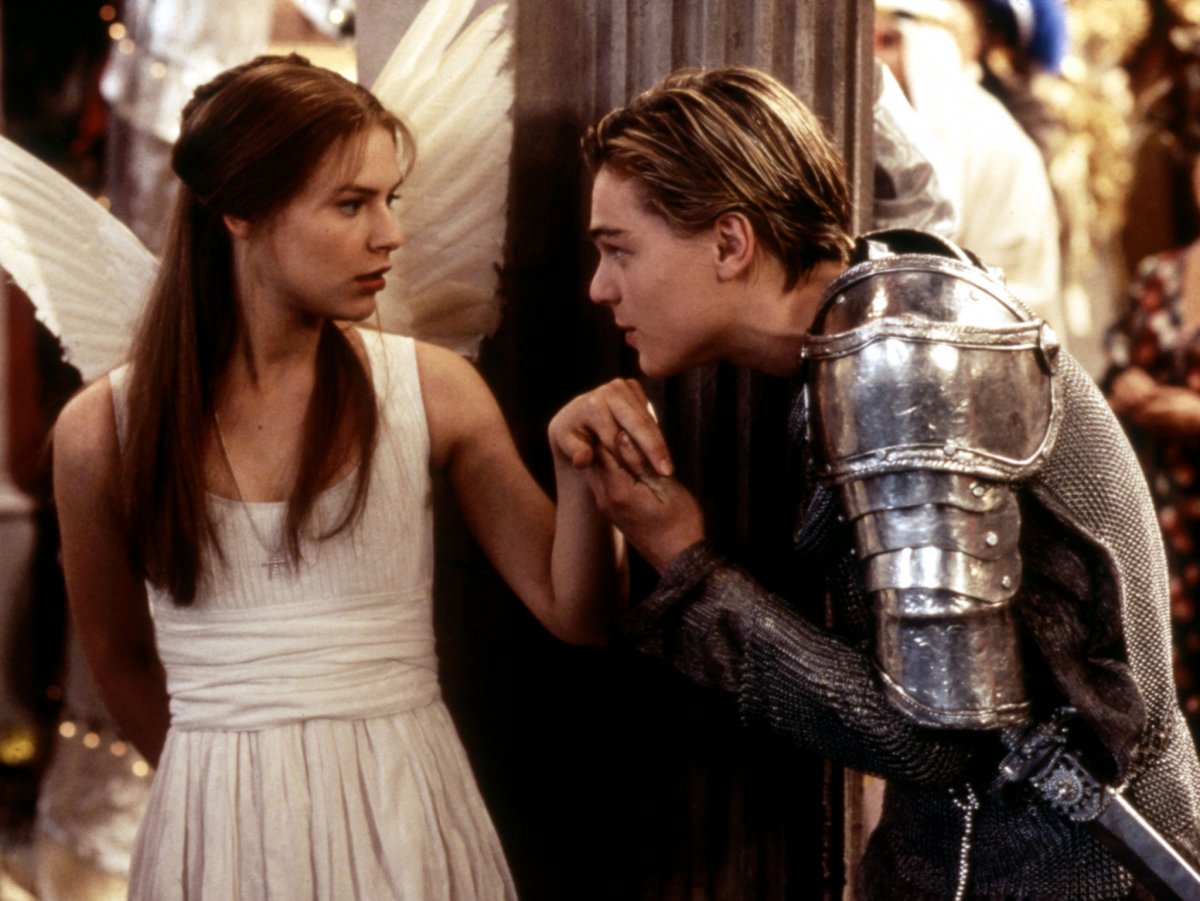
Upon further scrutiny of Romeo and Juliet, instead of the superficial perspective the commercial world has chosen to capitalise on, it can be seen that Shakespeare has skillfully disguised a Marxist prophecy foretelling the suffering that mankind will incur by the Capitalist State-experiment. A prophecy that embodied the class struggle and the ethos of the Haymarket Affair, which is now celebrated in the form of May Day rallies. A prophecy that is relevant today, as the workers of the world are called to unite and to lose their chains.
Shakespeare’s warning is first issued through Romeo’s father’s words:
“MONTAGUE: Black and portentous must this humour prove,
Unless good counsel may the cause remove.” (1.1.144-145)
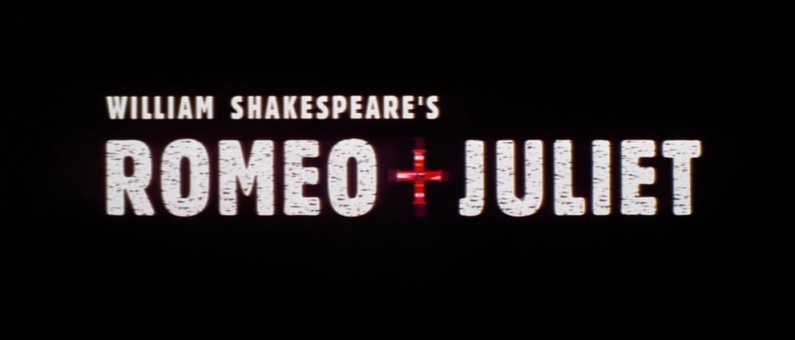
Image credit: Bazmark Films/Twentieth Century Fox Film Corporation
This political saga begins under the dark cloud of a cold war between the two households, both alike in dignity, in fair Verona.
“PRINCE: Three civil brawls bred of an airy word
By thee, old Capulet, and Montague,
Have thrice disturb’d the quiet of our streets”(1.1.91-93)
[…]
If ever you disturb our streets again,
Your lives shall pay the forfeit of the peace.” (1.1.98-99)
This stalemate between the two families can be seen as the chthonian underbelly of humanity made visible. Shakespeare acknowledges the state of constant crisis as the new “social order” and the two great families as the bourgeois social institutions of the status quo. The war within the macrocosm of Verona is further reflected in Romeo’s microcosmic crisis.
“BENVOLIO: Why, Romeo, art thou mad?
ROMEO: Not mad, but bound more than a mad-man is;
Shut up in prison, kept without my food,
Whipp’d and tormented…” (1.2.56-59)
Not fully understanding where his struggles lie, and unable to resolve his dilemma, Romeo lashes out to his cousin Benvolio and points out the absurdity of his fray with Tybalt and this ongoing war ‒ and by extension, the absurdity of the social institutions ‒ in sentence after sentence of oxymora.
“ROMEO: …O brawling love! O loving hate!
O any thing, of nothing first create!
O heavy lightness! serious vanity!
Mis-shapen chaos of well-seeming forms!
Feather of lead, bright smoke, cold fire, sick health!
Still-waking sleep, that is not what it is!
This love feel I, that feel no love in this.” (1.1.181-187)
Romeo, though full of questions he may be, it is Juliet who arrives at the answers. Having fallen for Romeo, in the most spectacular fashion, and in confessing her love for him, she arrives at the crux of the obstacle to them realising their love: the identity inculcated in the pair by the bourgeoisie.
She begs Romeo to abdicate his identity:
“JULIET: O Romeo, Romeo! wherefore art thou Romeo?
Deny thy father and refuse thy name…” (2.2.36-37)
She offers to do the same in exchange for his love:
“…Or, if thou wilt not, be but my sworn love,
And I’ll no longer be a Capulet.” (2.2.38-39)
She even questions the very nature of identity itself and the validity of these social institutions:
“’Tis but thy name that is my enemy;
Thou art thyself, though not a Montague.
What’s Montague? it is nor hand, nor foot,
Nor arm, nor face, nor any other part
Belonging to a man. O, be some other name!
What’s in a name? that which we call a rose
By any other name would smell as sweet;
So Romeo would, were he not Romeo call’d,
Retain that dear perfection which he owes
Without that title…” (2.2.41-50)
Juliet offers herself, devoid of her identity as a Capulet:
“… Romeo, doff thy name,
And for that name which is no part of thee
Take all myself.” (2.2.50-52)
And finally, Romeo relents:
“Romeo: …Call me but love, and I’ll be new baptized;
Henceforth I never will be Romeo” (2.2.54-55)
Having shun their identities, they consummate their love by exchanging vows once in Capulet’s orchard and once more in Friar Laurence’s cell, where the Friar’s ominous words surmises not only the violent brilliance of their metamorphosis from lovers to Übermensch (Nietzsche, in his novel Thus Spoke Zarathustra, envisions humanity to transform itself into an enlightened, mystical Supra-humans: Übermensch), but also their fate to come.
“FRIAR LAURENCE: These violent delights have violent ends
And in their triumph die, like fire and powder,
Which as they kiss consume” (2.6.9-11)
Their metamorphosis also denotes their treason and the threat they pose to the bourgeoisie ‒ a transgression that cannot be allowed. For, even if one person were to defect, it will set a precedent for the fecundity, within, that the Buddha spoke about: the fecundity the bourgeoisie tried so hard to smother that an event of astronomical proportions has to germinate it, from without. For Romeo, it was Juliet’s beauty which…
“…she doth teach the torches to burn bright!
It seems she hangs upon the cheek of night
Like a rich jewel in an Ethiope’s ear;
Beauty too rich for use, for earth too dear!” (1.5.51-54)
The status quo must prevail and the pair of star-cross’d lovers, now Übermensch, must be prevented from realising their utopian drama ‒ of seeking to metamorphose this melting pot of chaos into a society where the two families can live in amity, equality, and unity, by and through their pursuit to transform the individual into fellow Übermensch, which began with themselves; hoping that the macrocosm to reflect their microcosm ‒ by agitating the stalemate held in equilibrium by the First Citizen.
However, even Romeo’s love and compassion, equaling that of a Bodhisattva, fails to keep the peace, which results in Tybalt murdering Mercutio, and by his love for Mercutio, Tybalt murdered by Romeo.
“ROMEO: Tybalt, the reason that I have to love thee
Doth much excuse the appertaining rage
To such a greeting: villain am I none;
Therefore farewell; I see thou know’st me not.
TYBALT: Boy, this shall not excuse the injuries
That thou hast done me; therefore turn and draw.
ROMEO: I do protest, I never injured thee,
But love thee better than thou canst devise,
Till thou shalt know the reason of my love:
And so, good Capulet,—which name I tender
As dearly as my own,—be satisfied.” (3.1.61-73)

Romeo about to avenge Mercutio. Image credit: stjohns.sa.edu.au
Hence, Romeo’s exile from fair Verona’s walls and Juliet’s love.
Now, Romeo and Juliet’s marriage has meddled with the default civil war, and tried to end it, twice. The unfortunate series of events that followed, which precipitated in the annihilation of the newly realised Übermensch, ensures the continued perpetuation of the the Capitalist State.
“ROMEO: O, here Will I set up my everlasting rest,
And shake the yoke of inauspicious stars
From this world-wearied flesh. Eyes, look your last!
Arms, take your last embrace! and, lips,
O you The doors of breath, seal with a righteous kiss
A dateless bargain to engrossing death!” (5.3.109-115)
[…]
[Drinks poison]
“O true apothecary!
Thy drugs are quick. Thus with a kiss I die.” (5.3.119-120)
[…]
“JULIET: What’s here? a cup, closed in my true love’s hand?
Poison, I see, hath been his timeless end:
O churl! drunk all, and left no friendly drop
To help me after? I will kiss thy lips;
Haply some poison yet doth hang on them” (5.3.166-170)
[Kisses him]
“O happy dagger!
[Snatching ROMEO’S dagger]
This is thy sheath; there rust, and let me die.” (5.3.174-175)
[Stabs herself]
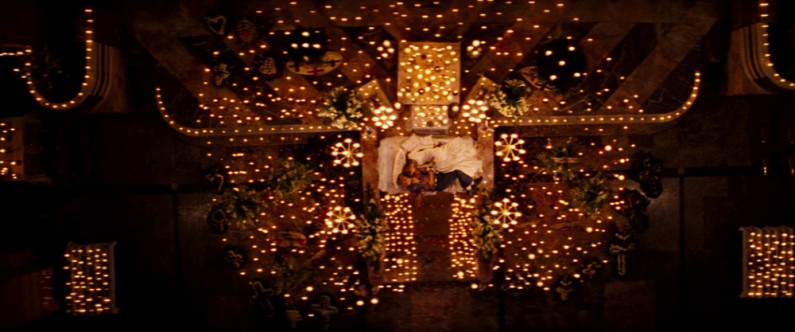
Romeo and Juliet meet their end. Image credit: Bazmark Films/ Twentieth Century Fox Film Corporation
Thus, the bourgeoisie, along with the constant state of unrest, prevails.
Featured image credit: Bazmark Films/ Twentieth Century Fox Film Corporation


